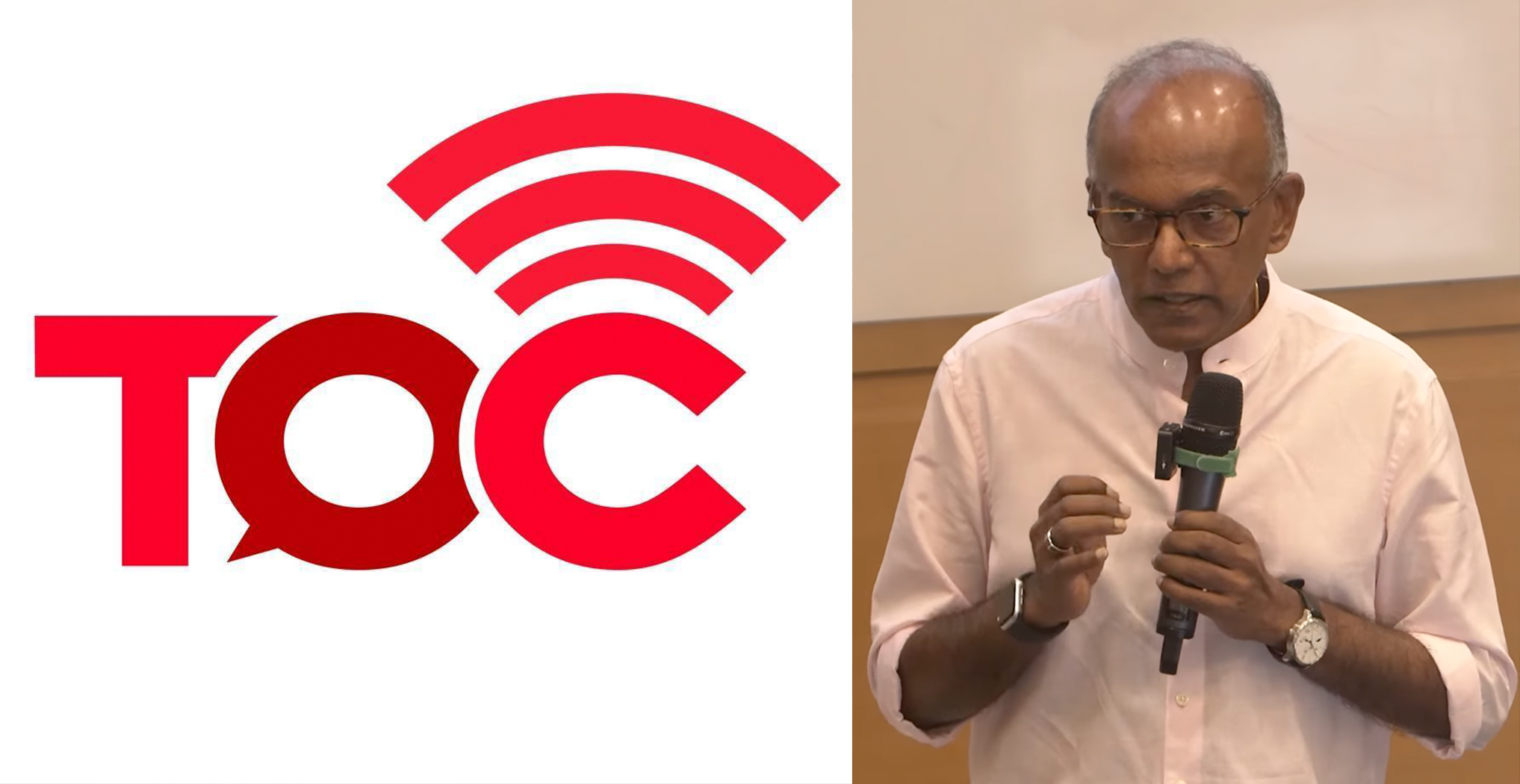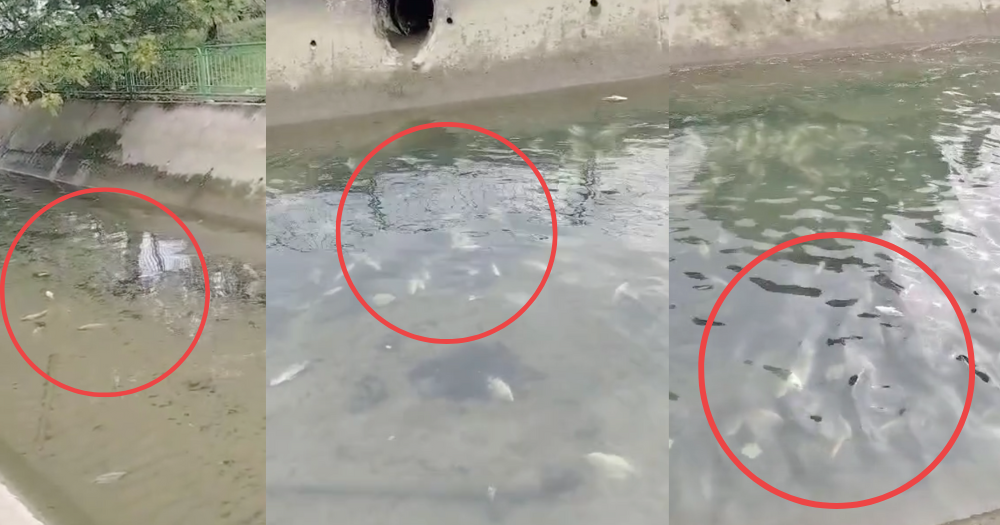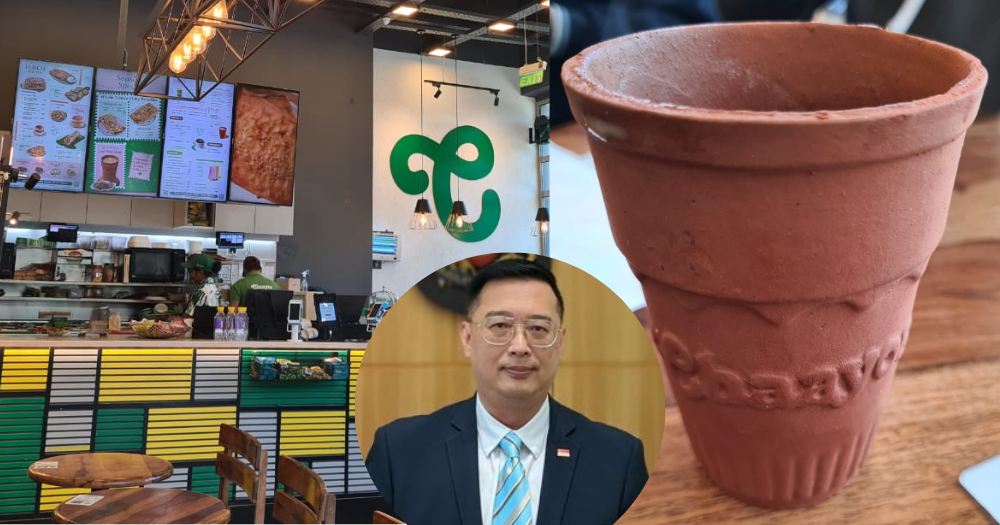This 19-year-old persuades strangers to use 2nd-hand items & holds a freecycling market in school every year
Nurturing his passion for sustainability in school.

For 19-year-old Lee Quan Yao, reducing waste isn’t just a responsibility—it’s a lifestyle.
Whether it’s bringing his own lunchbox and utensils to cut down on single-use packaging or transforming discarded materials into creative projects, the aspiring architect integrates sustainability into his daily life.
Lee’s innovative approach extends beyond personal habits into his coursework.
As a student pursuing the diploma in architecture, he repurposes materials from Nanyang Polytechnic’s (NYP) recycling pile to create functional items like keychains and woodcrafts.
He avoids wasteful practices by reusing foam board posters for recurring events, showcasing how resourcefulness can replace reliance on non-recyclable materials.
 Quan Yao at a beach cleanup. Photo courtesy of NYP.
Quan Yao at a beach cleanup. Photo courtesy of NYP.
Even when printing posters made of paper for new events, he ensures minimal impact by prioritising longevity and reuse.
Lee’s sustainable mindset is fuelled by his growing awareness of the construction industry’s environmental impact.
“The construction industry is responsible for almost 40 per cent of global CO2 emissions,” he explained.
“I feel a strong sense of responsibility to advocate for sustainable practices and contribute to reducing this impact.”
 Quan Yao builds his architectural models using materials from the school’s recycling pile to reduce waste. Photo courtesy of NYP.
Quan Yao builds his architectural models using materials from the school’s recycling pile to reduce waste. Photo courtesy of NYP.
Freecycling: Giving old items a new life
This sense of responsibility has inspired Lee to take action on a larger scale, most notably through his work with NYP’s Geo Council.
As vice president of the student environmental club, he leads projects that marry practical solutions with awareness campaigns.
Among these, the Freecycle Bin that Lee set up on campus is a standout success, one that continues to have impact to this day.
The initiative promotes the concept of “freecycling”—giving pre-loved items a second life instead of discarding them.
He also organises an annual Freecycle Market that transforms this idea into a vibrant marketplace where students can exchange second-hand items at no cost.
Yes, it reduces waste, but Lee also sees the event as an opportunity to change perspectives about freecycling.
Bringing freecycling to Teck Ghee residents
Lee’s dedication to this cause extends to the wider community through the “Adopt a Block” initiative, where he brought the concept of freecycling to residents of Teck Ghee.
Tailoring his approach to different demographics, he introduced sustainability in ways that resonated with each group, from elderly residents to working adults.
One encounter stands out in his memory—a resident’s heartfelt question about when the next freecycle event would be.
“It was bittersweet,” Lee reflected.
“On one hand, it was heartening to see that the community was willing to embrace the idea of using second-hand items to practise sustainability. On the other hand, I felt limited in my capacity to meet the needs of both the NYP and Teck Ghee communities.”
 Quan Yao introduced the concept of freecycling to residents in the community through the “Adopt a Block” initiative. Photo courtesy of NYP.
Quan Yao introduced the concept of freecycling to residents in the community through the “Adopt a Block” initiative. Photo courtesy of NYP.
Building bridges through community engagement
Selling the idea of freecycling to elderly residents wasn’t easy at first.
During door-to-door surveys for the “Adopt a Block” programme, Lee and his team engaged with residents about their sustainability knowledge and goals.
Some were resistant at first, grumpy and impatient even, since it was a pitch after a long day.
“But we took the time to listen to their concerns and explain the importance of sustainability in a way that felt more personal and relatable to them,” he recalled.
Despite the initial resistance, the team was able to gain valuable insights for their project.
“Those moments shaped my understanding of the importance of community engagement and the emotional connection that comes with working together for a common cause.”
A culture of sustainability at NYP
Lee credits his time at NYP for nurturing his passion for sustainability and providing the platform to put his ideas into action.
The polytechnic’s commitment to eco-friendly practices is woven into its education and community programmes.
NYP integrates sustainability topics into its competency-based curriculum, enabling its students to understand the interconnectedness of environmental, social, and economic factors, all while honing their critical thinking skills.
In his architectural coursework, Lee was tasked with designing a sustainable school—a challenge that reinforced his belief in integrating green solutions into urban living.
 This decorative panel was created using upcycled wood that Quan Yao and his teammates sourced from vendors. Photo courtesy of NYP.
This decorative panel was created using upcycled wood that Quan Yao and his teammates sourced from vendors. Photo courtesy of NYP.
Beyond academics, NYP’s emphasis on resourcefulness and waste reduction has shaped his approach to his future career, daily life, and even his hobbies.
And just like Lee, students at NYP are encouraged to champion social good and be changemakers in the community.
Be it in their curriculum, CCAs, or projects, each student can contribute to sustainability differently during their time at NYP.
Keen to immerse yourself in the NYP community?
Visit NYP Open House from Jan. 9 to 11, 2025; you can explore the campus, chat with their lecturers and students, and experience firsthand the vibrant student life there.
For more details, check out their open house website here.
Thanks to this branded content by NYP, this writer is open to giving freecycling a try.
MORE STORIES


















